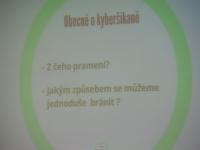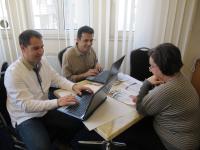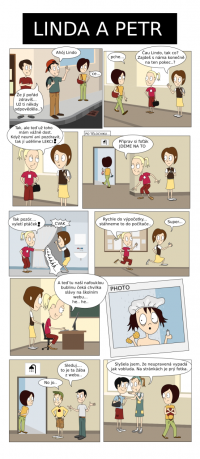

 Certifikovaný program primární
Certifikovaný program primárníprevence pro žáky MŠMT
 Akreditované školení
Akreditované školenípro učitele MŠMT
 3. místo za ČR v soutěži Evropská
3. místo za ČR v soutěži Evropskásíť prevence kriminality (EUCPN)
- Aktivity září a říjen
- Kraj pro bezpečný internet 2024
- Community volunteering against cyber bullying
- Sticks and Stones
- Šablony - Zvyšování kvality neformálního vzdělávání v Moravskoslezském kraji
- European Solidarity Corps
- ff
- Yes We Can !
- Bezpečnější internet s Ministerstvem zdravotnictví
- Tolerance vede ke štěstí
- Ostrava - město odpovědných škol 2022
- Bezpečný internet s ČSOB II.
- trikem proti kyberšikaně
- Kyberšikana má červenou 2022
- S kyberšikanou v duši II.
- Umění startu
- S kyberšikanou v duši
- S kyberšikanou pod kůží
- Řidičský průkaz internetového surfaře
Digital Dementia
What is Digital dementia?
Digital dementia is a term coined by top German neuroscientist Manfred Spitzer in his 2012 book of the same name, it is to describe how overuse of digital technology is resulting in the breakdown of cognitive abilities in a way that is more commonly seen in people who have suffered a head injury or psychiatric illness. In other words, digital dementia is a chronic or persistent disorder of the mental processes caused by brain disease or injury and marked by memory disorders, personality changes and impaired reasoning.
Nowadays, almost everyone has one smartphone and tends to rely so much on it for remembering phone numbers, appointments or birthdays. The smart phone seems to have taken place of both short term and long term memory. Besides, our daily lives are also affected by hundreds of emails, instant messages and social media notifications all the days without notice. All those things actually contribute to Digital dementia. Technology is a two-edged sword, it can help people connect together, share moments and exchange information; however, when they are susceptible to constant connection and overuse of technology, their brain will suffer from imbalance. The imbalance of the brain is associated with deficits in ability to concentrate, short attention, memory span and emotional disturbances, such as depression.
Stories of victims
Psychiatrist Kim Dae-jin at Seoul St. Mary's Hospital recently diagnosed a 15-year- old boy with symptoms of early onset dementia due to intense exposure to digital technology -- television, computer, smartphone and video games -- since age 5. He could not remember the six-digit keypad code to get into his own home and his memory problems were hurting his grades in school. "His brain's ability to transfer information to long-term memory has been impaired because of his heavy exposure to digital gadgets," the psychiatrist told the Korea JoongAngDaily.com.
How to resist
The experts say that "Use it or lose it". The brain, just like a muscle in our body, can atrophy if we don’t use it. Work can — and should — wait. Facebook can wait. If we focus instead on having real conversations, reading books, getting out into nature, and disconnecting from technology, we will be taking care of our brain health and our emotional health as well. By significantly reducing the time spent on electronic devices, individuals can cut down on their chances of falling victim to digital dementia. Here are some easy ways we can do to to retain from digital dementia:
- Use Your Head. Retrieve information from your brain organically – rather than automatically turning to Google to look up that actress you can’t remember immediately. Sit there and concentrate until you can recall it
- Crack Open a Book. That’s right. Reading an actual book rather than a tablet has been shown to improve memory retention.
- Learn a new language. Putting you outside your comfort zone helps your brain work harder, which makes you smarter.
- Play a new instrument. Instruments require the use of both side of the brain – like the piano or the guitar, for example, which help strengthen and balance it.
- Get physical. Physical exercise increases blood flow and accelerates the transport of vital nutrients to your brain. Essentially, we need to be doing anything that can lead to the healthy restructuring or ‘rewiring’ of our brains. We need to be spending less time relying on technology and more time relying on our brain power.
Source
https://www.alzheimers.net/2013-11- 12/overuse-of- technology-can- lead-to- digital-dementia/















